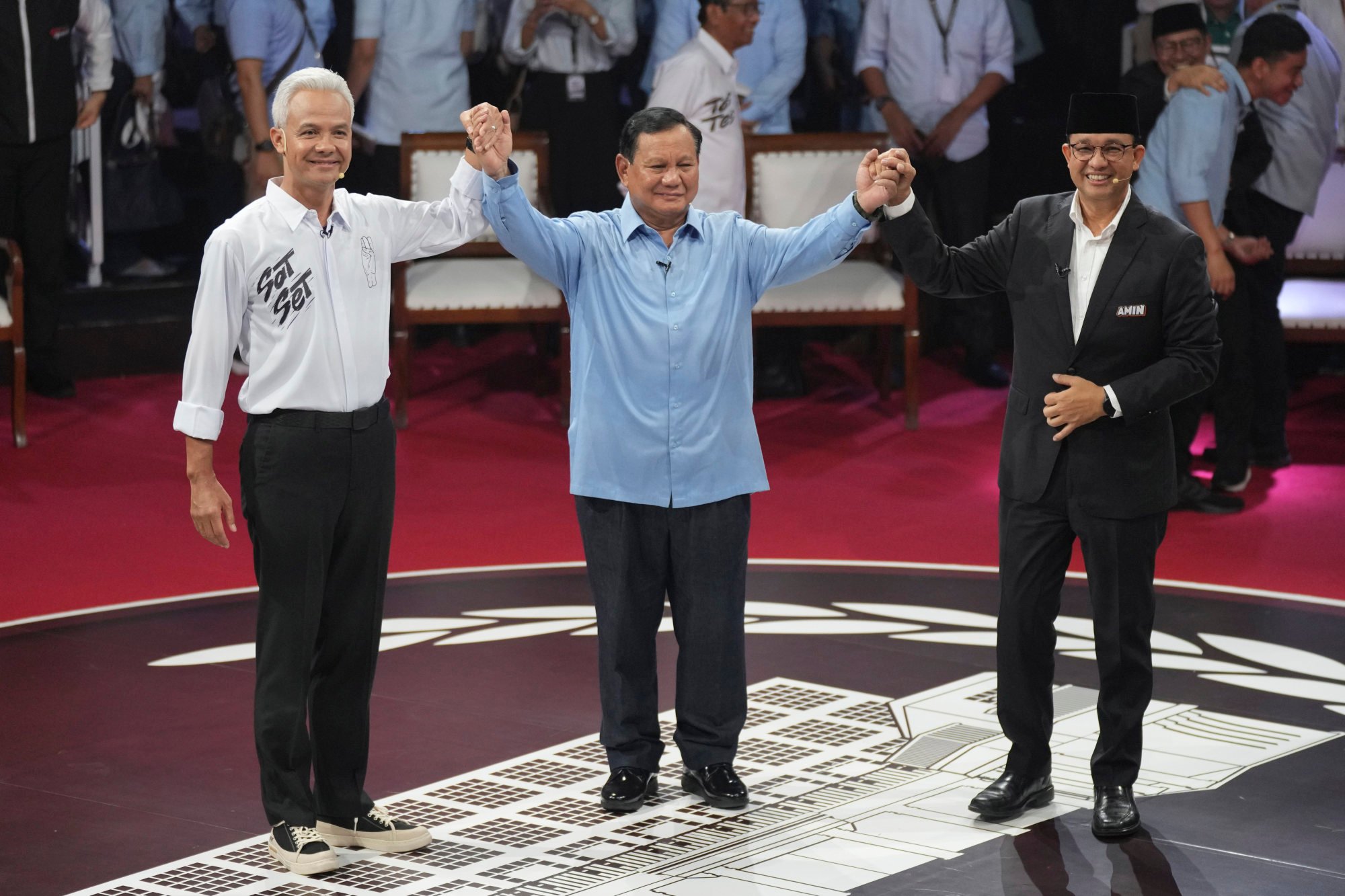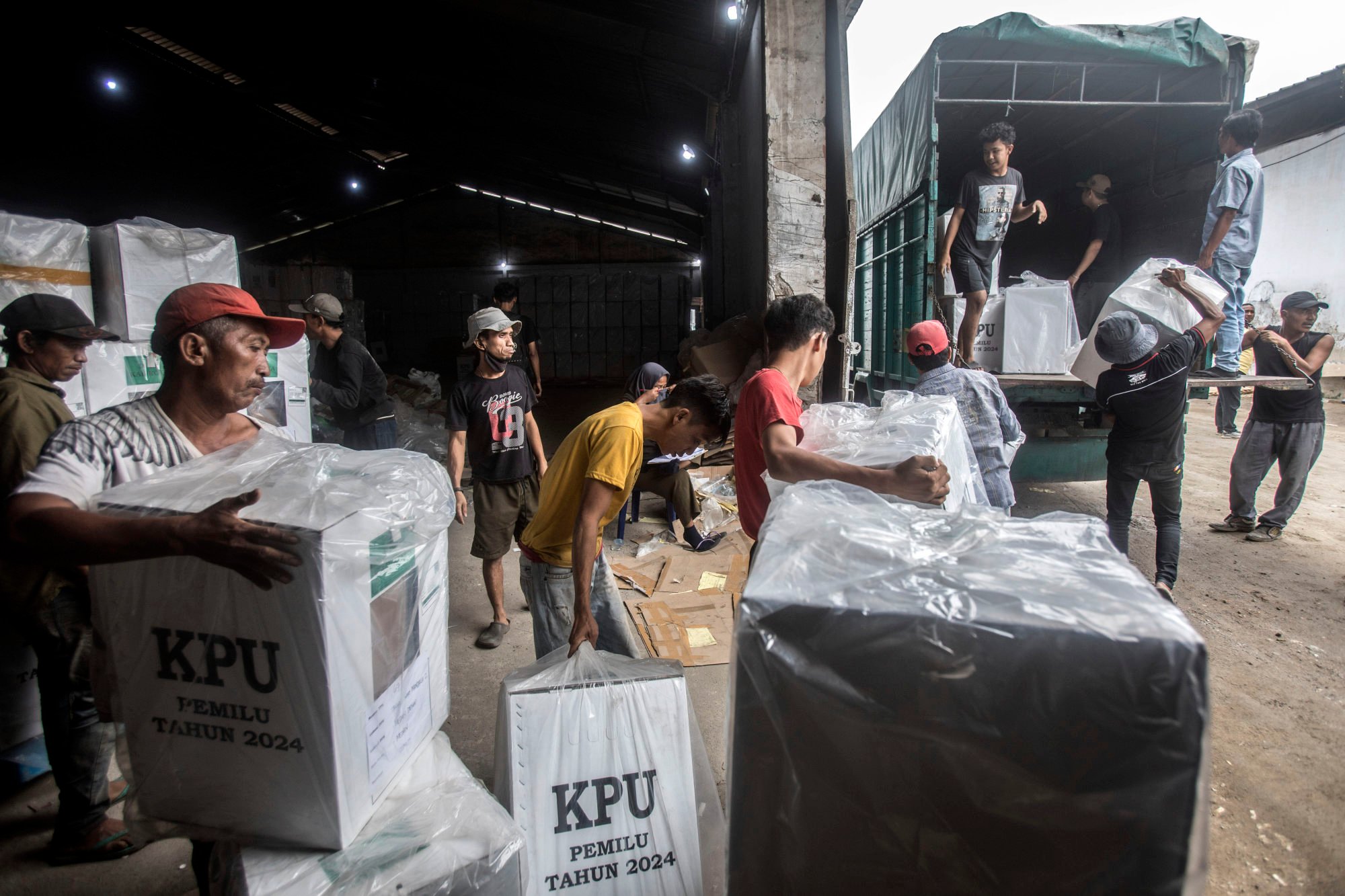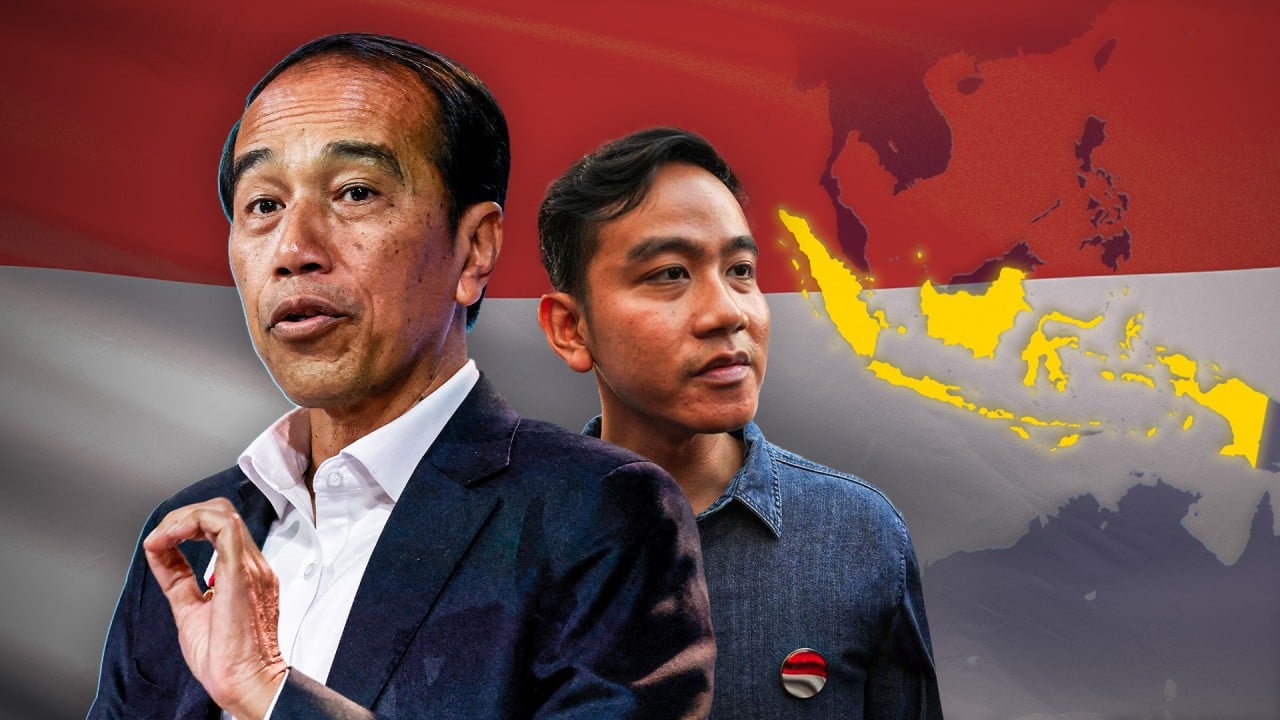Indonesia election 2024: everything you need to know about the world’s largest single-day vote
This election cycle has been marked by controversies, particularly surrounding concerns of democratic backsliding in the country, which have prompted questions about President Widodo’s influence over state institutions to favour his preferred candidate: front runner Prabowo.
Here are some key things to know about the candidates, the parties and the controversies that have led up to the election.
A quick recap
After 10 years in power, Widodo is required to step down from office having completed the constitutionally mandated maximum of two terms.
Widodo, known popularly as Jokowi, is the seventh president of Indonesia and has maintained popularity among the public, reflected by recent approval ratings of more than 70 per cent.
Indonesian President Jokowi’s approval rating at all-time high: poll
Indonesian President Jokowi’s approval rating at all-time high: poll

The candidates
Widodo’s son is running for vice-president on Prabowo Subianto’s ticket, earning the former defence minister the president’s tacit support, and making him this election’s front runner.
Also largely running on a policy of continuity is the ruling party’s candidate, Ganjar Pranowo, who has paired up with former security minister Mahfud MD.
Ganjar was initially viewed as successor to Widodo, as they both belonged to the Indonesian Democratic Party of Struggle (PDI-P). But Widodo’s full endorsement never came, and support for Ganjar dwindled.
Who are the 3 candidates vying to become Indonesia’s next president?
Who are the 3 candidates vying to become Indonesia’s next president?
The only opposition candidate is former Jakarta governor Anies Baswedan, running alongside Muhaimin Iskandar who has strong ties with Indonesia’s biggest Islamic organisation Nahdlatul Ulama with some 40 million members.
A former university rector, Anies received plaudit for his work on improving infrastructure in Jakarta during his tenure as governor, but a brush with identity politics in getting him that position has also turned some voters away.
Opinion surveys last week put Prabowo just above 50 per cent, with Anies coming in second with around 24 per cent, and Ganjar around 20 per cent.
Observers have said it is too hard to tell if Prabowo will win the election in one round, and a lot will depend on voter turnout.
Indonesia’s election system
Polling stations across the country’s three different time zones will open at 7am Jakarta time and close at 1pm.
While voting is not mandatory, election day in Indonesia is a public holiday, likely resulting in a high voter turnout. In the 2019 election, at least 81 per cent of the electorate took part, according to the Indonesian General Election Commission.
Citizens aged 17 or older are allowed to vote. This year, 52 per cent of registered voters are under 40, and almost one-third of all voters are under 30, so courting the youth bloc has been a priority for all three candidates.
Indonesians will be voting for a new president and vice-president, as well as members of parliament and lawmakers for the around 20,000 administrative posts throughout the country.

Political parties must get a minimum of 4 per cent of the votes to qualify for the national parliament, while a presidential candidate needs over half of the total votes nationwide and at least 20 per cent of the votes in more than half of the country’s provinces to secure victory.
To provide early indications of the election results, polling stations in Indonesia utilise a “quick count” sampling method. Going by previous elections, a result for the country’s new president is expected on the evening of February 14.
If no candidate surpasses the threshold to win the election tomorrow, the run-off will be held on June 26 between the two candidates who received the highest votes in the first round.
Widodo is set to officially hand over the presidency in October.


